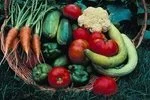Depression may worsen based on the daily intake for Effexor users
It's a well-known fact that daily nutritious intake is key to maintaining a healthy lifestyle, and this may be even more imperative for Effexor users.
It's a well-known fact that daily nutritious intake is key to maintaining a healthy lifestyle, and this may be even more imperative for Effexor users. This was further supported after researchers from the University of Eastern Finland conducted several studies that looked at specific aspects of daily food intake and associations with the risk of depression in patients. Caffeine and depression Of the 2,232 middle-aged men who were observed, 49 were diagnosed with depression. Although there was no relationship found between tea and other beverage drinkers and feeling blue, that was not the case when it came to coffee. In fact, those who drank moderate to heavy amounts of it were less likely to suffer from depression. However, the reasoning behind this was not clear. Diet and depression Over the course of 13 to 20 years, researchers followed up with participants of this study to examine their dietary patterns. Additionally, symptoms of depression were monitored over this period of time. Based on what was observed, the health care professionals found that an increased intake of folate and an overall healthy diet helped to decrease one's risk of depression. Although diet alone cannot prevent a diagnosis of depression, it may help to reduce symptoms associated with the condition. Sugar and depression Based on all of the information that was collected by researchers from the University of Eastern Finland, patients who are taking Effexor can use their diets as a source for preventing future depressive episodes. |




